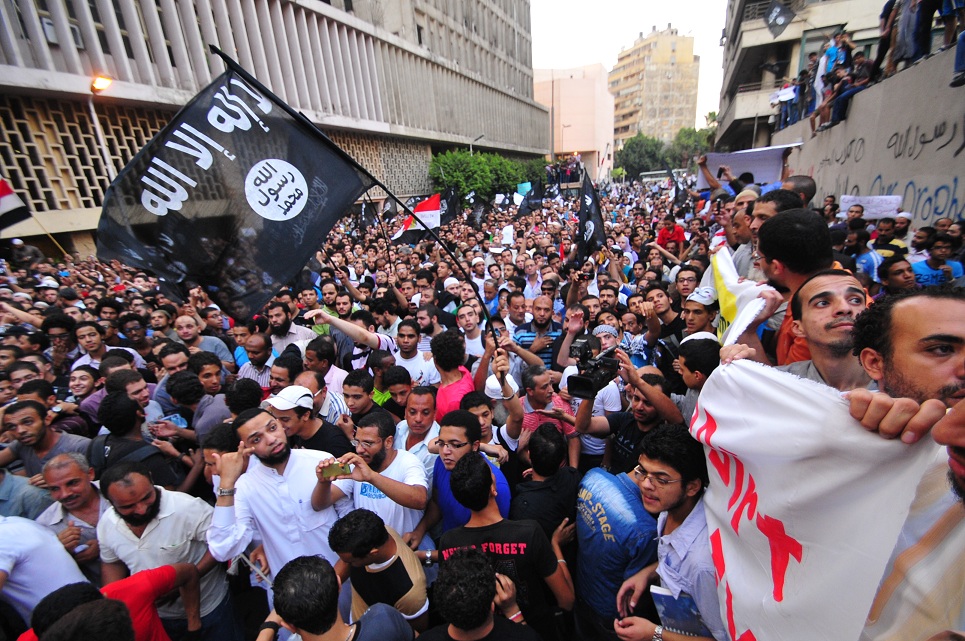By Jailan Zayan /AFP
CAIRO: Egyptian activists are calling for a massive rally on July 8 to “save the revolution” that toppled Hosni Mubarak, urging politicians to drop debates on the timing of elections and focus on restoring basic freedoms.
On a Facebook page entitled “The 2nd revolution of anger,” activists say the fundamental demands of the uprising — to protect rights and freedoms — have not been met, and have instead become clouded by arguments on whether elections or a constitution should come first.
“To all rival political forces debating which should come first, constitution or elections, save your revolution first, save Egypt first. Our revolution is collapsing,” the activists said on their Facebook page, which by Friday had garnered over 55,000 members.
The Supreme Council of the Armed Forces, which took over when nationwide protests forced Mubarak from power in February, has scheduled parliamentary elections for September.
But an autumn poll is expected to play into the hands of the well entrenched Muslim Brotherhood, prompting calls from secular politicians for a delay to allow new parties to organize themselves.
Some have also called for a new constitution to be drawn up before the election, for fear that the Islamist group will otherwise have too much influence over its drafting.
But those behind the call for the July 8 protest say the debate is premature, arguing that the priority should be on ensuring freedom of expression, the public trial of those found guilty of abuse, and an end to military trials of civilians.
“When (a) protest is dispersed with the use of thugs and when the army performs virginity tests on women, and when protesters are tortured, then something is definitely wrong,” the activists said in a video posted on YouTube.
The army, which has been accused of rights abuse since taking over in February, has come under intense fire from local and international rights watchdogs for allegedly performing virginity tests on female protesters they detained during a March 9 demonstration in Cairo.
“When army officers who killed protesters are not put on trial, and when those who joined the protesters are tried and sentenced to 10 years, then something is definitely wrong,” they said.
“When journalists and judges are referred to military prosecution for mentioning the military council and there is no freedom, then everything is wrong,” they continued.
Protesters who first took to the streets to demand the overthrow of Mubarak, began shifting their anger towards the ruling military council, accusing it of using Mubarak-era tactics to stifle dissent.
Politics during Mubarak’s three-decade rule was dominated by his National Democratic Party, working among a stagnant opposition. Any credible dissent came from the banned Muslim Brotherhood and a handful of opposition groups working outside the formal framework.
Then came the January 25 Revolution, opening the door to new parties, new ideas and new debates in a scene that would have been inconceivable just months earlier.
But some argue that this new political effervescence risks turning flat if the basic goals of the revolution are not fulfilled, with irrelevant battle lines being drawn.
Debating whether elections or the constitution should come first pits the Islamists against the secularists whereas the focus should be on working for a civilian democratic state, argues Rabab Al-Mahdi, professor of political science at the American University in Cairo.
“We in Egypt have paid the price for a democratic state which separates the army from politics … based [on] social justice. This democratic state is now being threatened by a minority concerned only with the relationship between religion and the state,” Al-Mahdi wrote in the independent daily Al-Shorouk.
The activists calling for the July 8 protest are urging Egyptians to look at the broader picture. The page’s slogan: “I haven’t felt the change, I’m going back to Tahrir Square” — the epicenter of protests that toppled Mubarak.


